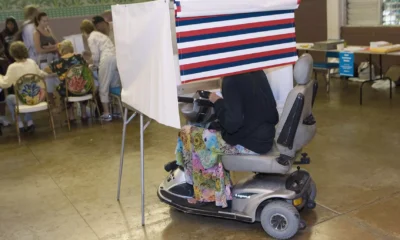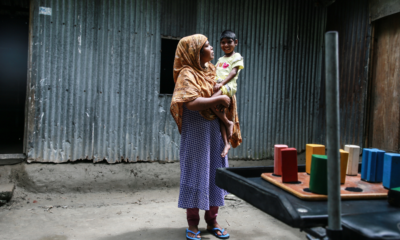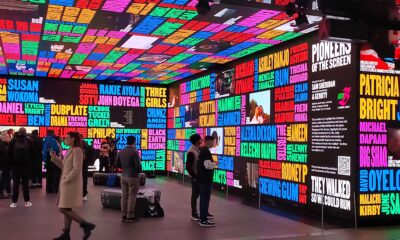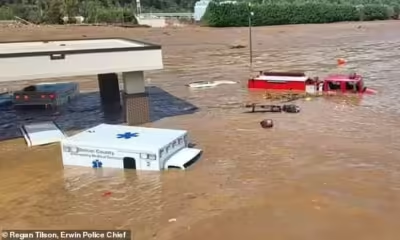Love and Romance
Feeling Like an Outsider in Both Disabled and Queer Spaces
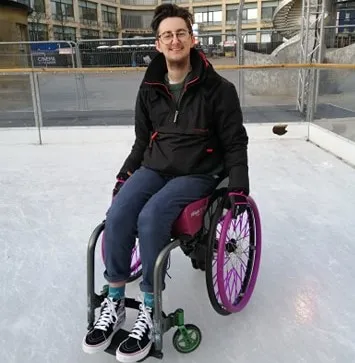
As a Deaf and disabled asexual trans man, I navigate the complexities of double discrimination within both LGBT+ and disabled communities. This became starkly apparent several years ago when I attended an LGBT+ conference. I was one of only two wheelchair users among hundreds of delegates, and the organizers had assumed I could navigate steps unaided.
Sharing a single wheelchair space with another attendee highlighted the event’s lack of accessibility and created a bond between us. Yet, this experience was not unique. As someone who falls through the gaps of both communities, I often feel marginalized and uncomfortable.
Navigating the event was nearly impossible. Workshop rooms were inaccessible due to heavy doors, and the only accessible toilet was designated as a gender-neutral facility, leading to long queues. Insensitive questions about my disability further added to my discomfort.
My primary disability, Ehlers Danlos Syndrome, causes chronic fatigue, pain, and frequent joint dislocations. When people ask what’s wrong with me, it feels like an attack on my existence. This lack of understanding and inclusivity at the event made me question my participation in LGBT+ spaces.
However, this incident fueled my determination to fight for change. I began advocating for disabled people on the asexual and aromantic spectrum (aspecs), striving to create inclusive and welcoming communities.
Ableism within LGBT+ groups extends beyond physical inaccessibility. I constantly have to justify my identity and existence. At an LGBT+ pub, a gay man expressed that he’d rather die than be in a wheelchair, disregarding my assertion that my wheelchair represents freedom and independence.
Such attitudes persist in the dating scene, where many are unwilling to engage with disabled individuals. Meeting my partner Luke at a disabled conference was a turning point. Although initially welcoming, the community’s misgendering soon revealed that inclusivity was still lacking.
Yesterday I married my best friend – still feels surreal ????
Honoured to have everyone with us and grateful for @_KittyTB_, @BSLterplife and @LipspeakerMandy for making our day accessible and extra special ✨
Thanks also to the incredible @KateStanforth and @ambideafkid ???????????? pic.twitter.com/Apy4st2c6L— Jasper ???????? (@QueerCantHear) May 19, 2024
Misconceptions about asexuality further complicate my experiences. People often assume my disability causes my asexuality, reflecting outdated and harmful assumptions. Society’s view that asexuality is inherently wrong is pervasive.
Despite these challenges, dating Luke, who is also disabled and aspec, has given us a strong connection and mutual understanding. Yet, navigating both communities often feels like choosing between identities: Deaf and disabled or LGBT+.
Online spaces are not exempt from this discrimination. I regularly face aphobia in disabled communities, being accused of contributing to the desexualization of disabled people simply by being open about my asexuality.
Feeling excluded from both communities inspired me to start WheelieQueer, a business offering accessibility coaching, disability benefits assistance, and inclusion training. My goal is to empower Deaf and disabled people and encourage inclusivity.
Reflecting on my journey, I realized that tolerating prejudice makes me complicit. We need allies who are willing to educate themselves and normalize aspec identities within all communities.
Disabled aspec people face double discrimination and deserve visibility and inclusion. Co-founding the #DisabledAspecsExist movement with Liam O’Dell and Charli Clement, I aim to build solidarity and support for our community. Until inclusivity is achieved, I will continue to speak up and amplify our voices.
Featured
Finding Love Online With a Disability
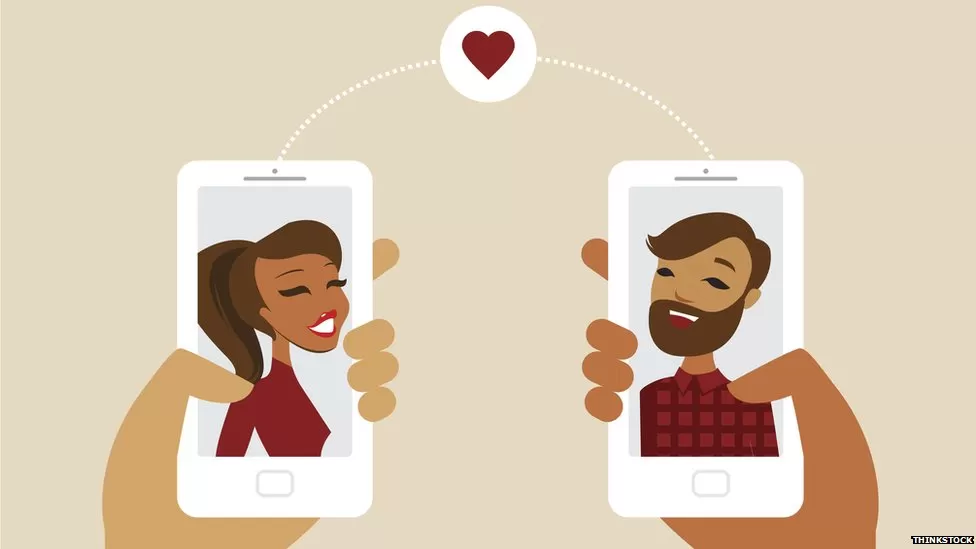
Let’s get loved up, after all, it is cuffing season
I’m a firm believer that any good person can find love, and that includes people with disabilities. I should know, I found my true love at 22 with the help of a dating site called OkCupid. My name is Miranda and I was born with Cerebral Palsy; I have to use a wheelchair to get around.
With the right attitude and precautions, the Internet can be a powerful tool for helping people with disabilities find love. I’m not saying everyone with a disability should use the online method, I’m sure plenty of disabled people have found a partner without it. However, if you’ve exhausted all avenues in the real world, online dating apps and websites are a lucrative option.
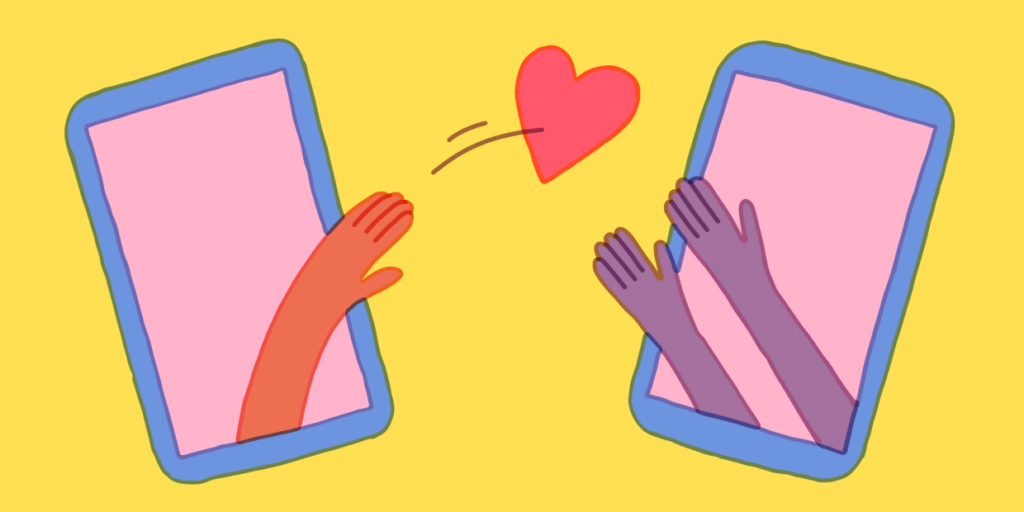
My Story
Throughout my dating life, I have found partners both online and offline. The majority of them were online. Why? I just find it easier that way. If someone viewed my dating profiles, they saw up front that I am disabled and can decide for themselves if they want to proceed.
I have had people in real life find me attractive, but they couldn’t deal with a disability, and that’s valid. I’ve also had people claiming they “missed out” on me because they didn’t know how to proceed with the Cerebral Palsy. And, to them, I say, “I’m sorry. I’m sure you’ll find your match.”
Online dating profiles take out all the guesswork. If you want to give me a shot, send a message; if you don’t, move on to the next profile. My partner took a chance on me in June of 2012.
The first thing that caught my attention about his message to me was that it wasn’t creepy. Disability or not, all women have dealt with their fair share of creepers online. I’ve gotten gems like “you’d look good in a bikini,” or my favorite, “I’ve always wanted to make it with a girl in a wheelchair.” That one made me shutter.
His simply said, “Hi, I think you’re really cute, and I would love to get to know you better.” Short, sweet, and to the point. My man is sometimes a man of little words.
I clicked on his profile, and it was pretty bare. It only said, “I hate writing these things. Message me if you want to know more.” I was a little turned off by that. As a writer, I’m a sucker for a good communicator, and my own profile was novel-length by profile standards. However, his message seemed so genuine that I couldn’t ignore it.
We ended up swapping phone numbers and starting to communicate by texts and calls. After a month of this, we set a date to meet in person. Did sparks immediately fly? Haha. No way.
The Meeting
The thing about me is that I get nervous around people I find attractive. And, I found him very attractive. The man didn’t even bat an eye when I asked him if I could bring a friend to the first meeting. I think all women should do this, especially those with disabilities. It’s a safety net. He even brought a couple of friends along so I wouldn’t have to feel awkward about needing someone. What a guy!
This may not feel like a big deal to some, but I had a guy go off on me once for not wanting to go alone to a bar with him. We had only met once prior! My alarms went off, and I certainly dodged a bullet after he tore me a new one for it.
Unfortunately, the first meeting didn’t go well because I clammed up. But, here’s the thing, if someone is really into you, they will make it known. He didn’t give up after that. He suggested we meet up in a more intimate setting to really get to talk. With my grandmother present, I invited him over to my apartment, and the sparks flew!
He was very kind and polite when my Gram would pop out of her room to talk to us. We bonded over Disney movies and musicals and had a great time! Ten years later, I’m living with him, and he is an amazingly loving and kind partner that helps me when I need him. I couldn’t ask for anyone better!
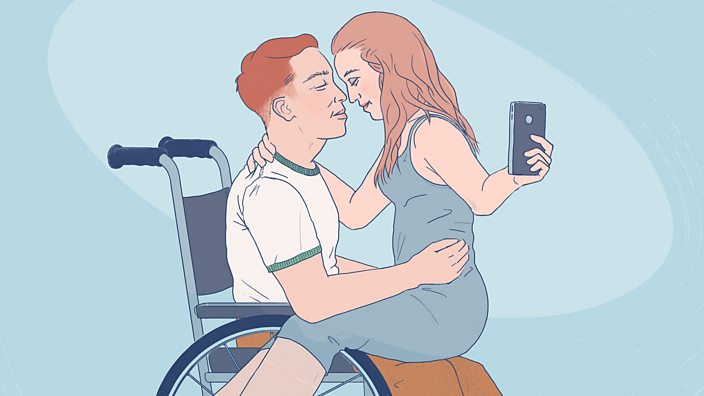
Conclusion
What I want others with disabilities to take away from this are a few things. Try online dating if you haven’t found what you’re looking for in the real world. It might work out for you, or it might not. What matters is that you gave it a try.
If you try the online route, don’t automatically dismiss a lacklustre profile. If I had done that, I would have never gotten all of these happy years. Give them a chance if they send you a genuine message that shows you they are into YOU and not what they can DO with you.
Finally, the sparks don’t always hit on the first meeting. After my experience with my partner, I usually advise people to give it a couple of dates before they decide to move further. Some people are overwhelmed during the first meeting and may do better the second time. I’m sure glad he stuck with me!
Please remember that your disability doesn’t define you. You are worthy and capable of receiving and giving love. It just may take a while to find it. We’re all in the same boat in that respect.



